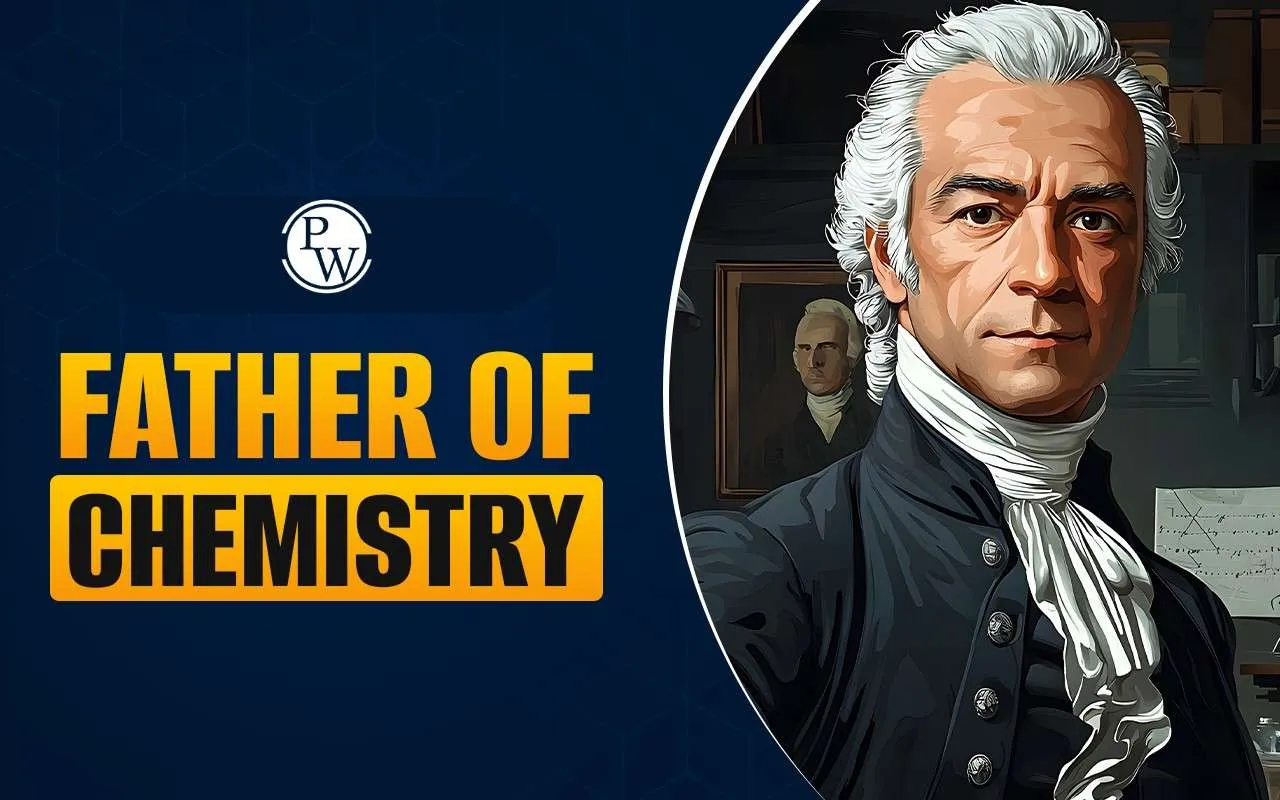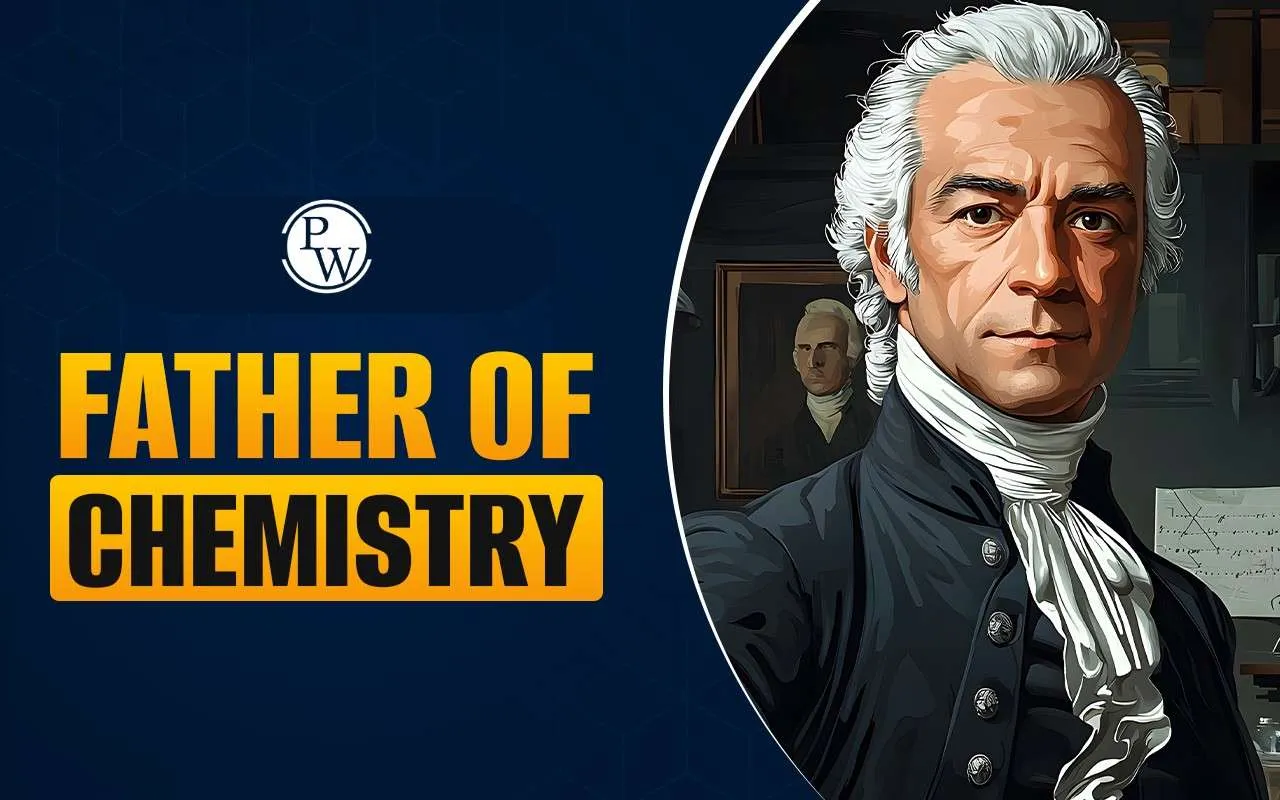

Father of chemistry is a title given to those who made chemistry a proper science instead of just experiments or guesses. Their contributions have made chemistry easier to study and more organised to help students and researchers.
Furthermore, in the world, Antoine Lavoisier is called the father of chemistry in world science because of his significant experiments and discoveries in Chemistry. In addition, in India, Prafulla Chandra Ray is remembered for research and teaching that helped develop chemical studies. Together, their work has created a strong foundation for modern chemistry.
Father of Chemistry Overview
The father of chemistry in world science introduced clear rules and experiments that made the study of matter easier. As a result, old ideas that were not tested were replaced by simple, logical explanations. Moreover, they suggested step-by-step ways to study elements, compounds, and reactions. This method helped chemistry become organised, understandable, and useful for learning and experiments.
|
Father of Chemistry Overview |
|
|---|---|
|
Aspect |
Details |
|
Field |
Chemistry |
|
Key Contribution |
Law of Conservation of Mass |
|
Important Experiment |
Combustion and Respiration |
|
Global Recognition |
Antoine Lavoisier |
|
Indian Recognition |
Prafulla Chandra Ray |
Role of Father of Chemistry in World
The father of chemistry transformed how people studied substances and reactions. He replaced guessing with careful experiments in the field of chemistry. He also introduced chemical names, studied elements, and measured substances accurately. His work inspired other scientists to explore and learn new things in chemistry. As a result, modern chemistry became clearer and more organised because of his contributions. Today, laboratories and classrooms still follow his methods and ideas.
About Antoine Lavoisier and His Contributions
Antoine Lavoisier is known as the father of chemistry in world science. He discovered oxygen and explained how it helps in burning and breathing. Furthermore, he introduced the law of conservation of mass to show that matter cannot disappear or appear by itself. Also, he gave clear names to chemical elements and wrote textbooks to help students learn Chemistry easily. As a result, his work made chemistry organised and easy to understand for everyone.
|
About Antoine Lavoisier and His Contributions |
|
|---|---|
|
Contribution |
Description |
|
Identification of Oxygen |
Explained burning and breathing |
|
Law of Conservation of Mass |
Matter is neither created nor destroyed |
|
Chemical Nomenclature |
Named elements and compounds clearly |
|
Educational Work |
Wrote books for learning chemistry |
Father of Chemistry in India
In India, Prafulla Chandra Ray is known as the father of chemistry. He studied various chemical compounds and taught students chemistry in a clear way. He also promoted practical experiments for industrial purposes. His efforts contributed to the development of research and chemical industries in India. As a result, students and scientists established a solid foundation for further research in chemistry due to his contributions in the development of Chemistry in India.
Prafulla Chandra Ray Contributions
Prafulla Chandra Ray conducted research, wrote textbooks, and guided students in chemistry. He also helped establish chemical industries in India to combine research with practical work. His teaching inspired young scientists to study thoroughly and conduct their own experiments in the field of Chemistry. Therefore, Ray is remembered for making chemistry simple, useful, and interesting for students and researchers throughout India.
|
Prafulla Chandra Ray and His Contributions |
|
|---|---|
|
Contribution |
Description |
|
Research |
Studied chemical compounds |
|
Education |
Wrote books and guided students |
|
Industrial Chemistry |
Helped develop chemical industries in India |
|
Legacy |
Inspired many Indian chemists |
Who is Regarded as Father of Modern Chemistry?
Antoine Lavoisier is regarded as the father of modern Chemistry. He introduced careful measurement, chemical names, and discoveries such as oxygen and the law of conservation of mass. Furthermore, he replaced old ideas with proven methods, making chemistry clear and understandable.
-
Antoine Lavoisier is recognised as the father of chemistry in world science
-
He introduced law of conservation of mass and clear chemical names
-
He wrote simple books to explain chemistry
-
He replaced old theories with modern chemical ideas
